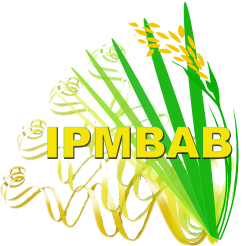Introduction
Plant molecular biology and agricultural biotechnology research and development can bring tremendous benefits to food security, human health and natural environment. The innovations from these endeavors can readily be transferred to serve the humanity needs. Science, technology, society, and environment are integral components of a sustainable society.
The newly established Institute of Plant Molecular Biology and Agricultural Biotechnology (IPMBAB) at the Chinese University of Hong Kong is built on the outstanding research track record of the Hong Kong University Grants Committee’s Areas of Excellence in the field of plant and agricultural biotechnology.
Due to population increase and loss/deterioration of arable lands, the stability of food production is a pressing problem in China and other developing countries. The mission of IPMBAB is to create and combine new innovations from basic science researches and state-of-the-art biotechnology with the traditional wisdom of breeders/farmers and the rich elite germplasm resources from China, to address the issue of food security, with emphasis on the improvement of major staple and economic crops such as rice and soybean. IPMBAB is to create knowledge through basic science researches, generate products of high impact through application of technologies, and train high quality researchers as important manpower reserve for the rapidly developing and globalizing communities in Hong Kong, China, and beyond.
Vision & Goals
To maintain and further develop the already established academic leadership in this field, IPMBAB is strengthening the partnership with the Mainland counterparts while extending a global international collaboration network. About eight years ago, team members of IPMBAB was among the first group of Hong Kong scientists who initiated close and deep collaborations with important agricultural institutes in China (such as China Hybrid Rice Center led by the ‘father of hybrid rice’ Prof. Longping Yuan, The Chinese Academy of Agricultural Sciences, and Yangzhou University) and more recently with the Institute of Genetics and Developmental Biology of the Chinese Academy of Sciences, a top plant biology research institute in China. As a demonstration of important international partnership, project of IPMBAB is a component of the ProVitaMinRice Consortium in the Grand Challenges in Global Health Initiative of Bill and Melinda Gates Foundation.
IPMBAB will be a hub to cluster expertise and establish research networks. Targeting important national and international plant biology and agricultural issues, the Institute positions herself as a key internationalized research institute in China. The establishment of IPMBAB should serve as a good example to position Hong Kong as an important, advanced, and internationalized city of China, taking advantages of the expertise resources gathered in Hong Kong as well as her infrastructure and international networks while working hand-in-hand with the China counterparts.
Director
Prof. JIANG Liwen, School of Life Sciences, CUHK
Deputy Director
Prof. LAM Hon Ming, School of Life Sciences, CUHK
Members
Prof. CHAN Ting Fung, School of Life Sciences, CUHK
Prof. GUO Dianjing, School of Life Sciences, CUHK
Prof. HE Junxian, School of Life Sciences, CUHK
Prof. NGAI Sai Ming, School of Life Sciences, CUHK

